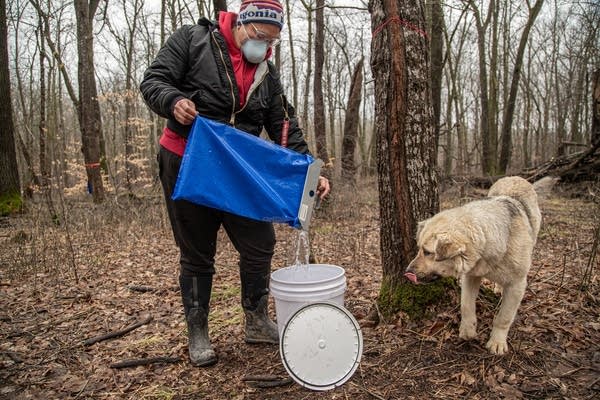New Bemidji State degree draws on Indigenous practices to teach 21st century sustainability

Keenly observed by her dog, Awanookwe Kingbird-Bratvold empties a bag with maple sap into a bucket near Red Lake, Minn. on April 23.
Monika Lawrence for MPR News
Go Deeper.
Create an account or log in to save stories.
Like this?
Thanks for liking this story! We have added it to a list of your favorite stories.


